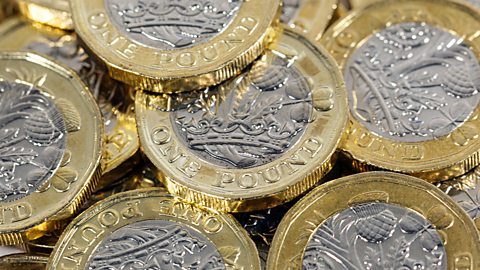How to make the most out of your money
With so much uncertainty and financial worry after everything that 2020 brought us, it's time to look ahead to getting money matters sorted in the new year.
In the , Claudia Hammond has been examining how everyday encounters illuminate our complex relationship with money and how there is more to it than meets the eye.
Here are some simple finance tips to make your money go further in 2021, save more successfully and avoid shopping pitfalls.
1. Mind the traps. We all tend to think we’re good at spotting a deal – but actually we will spend more money for a cheap car in an auction just because the luxury car sold before it went for a lot of money.
2. If you pay by card rather than cash you tend to spend more money and buy unhealthier foods. Try paying by cash more frequently for your smaller purchases, particularly at lunchtimes. Even better - make yourself a packed lunch.
3. Your personality plays a big role in how good you are at saving money. Sometimes people mistakenly think our attitude towards money comes from our upbringing and our parents, but have you ever noticed that siblings can have very different attitudes towards spending? Stable extroverts are more open, comfortable and carefree about their money. Whilst people who score high on conscientiousness are better savers.
4. The rule of threes: shops and online stores often lay things out in groups of threes. Imagine you’re looking to buy a cheap computer...there will be three items of a similar spec laid out in front of you. The three items will range in price from cheapest to most expensive. By showing you the one that’s more expensive, at least two out of three consumers will always buy the computer that is the middle price, rather than purchasing the cheapest item. This is the ‘compromise effect’ that most people fall for. We are most sensitive to disadvantages when shopping and often avoid the cheapest one in case the product is no good.
5. Not all money is worth the same. You will get more pleasure from winning £25 in a lottery one week followed by £50 the next, rather than £75 all in one go. Be mindful of your money and try and enjoy any winnings, no matter how much.
6. Beware the prices that end in a nine. £2.99, £3.49 or £59. People tend to think that these prices are better value, simply because the number nine is so often used to signal a discount. Amazingly, this will have the effect on people's minds that if they see something priced at £39 next to something valued at £35, they'll actually buy the one costing £39 because they think it's a discount!
7. It’s not in a name. Some studies have shown that people will buy according to their name. So for example, if your name is Frank, you might be quite likely to go for something valued at £55 because of the letter ‘F’. Crazy, but true. Fortunately, only people with certain letters in their names need to worry about this one.
8. We care about fairness. A study was done about snow shovels and whether it was ok to double the price of a snow shovel when there has been a heavy snowfall and the shovel is in demand? People were fundamentally against this because it’s not fair.
9. ‘Reference points’ are important to a buyer. This is when a consumer will be looking at the previous price prior to a discount to see what their savings could be, or they compare the price they've seen to what other stores are pricing the same item at. Sellers have a lot of trouble trying to control what a customer’s reference points are – if they can control which reference points you see (think shopping online or the mark-down prices in stores) they can control what price you’re willing to pay.
10. Keep your eyes peeled for tricks. The shops change their tactics fairly regularly, because consumers tend to realise after a year or so what is going on. What supermarkets tried 10 years ago isn’t what they’re doing today.

How shops are 'priming' you to spend money
Claudia Hammond on how shops are trying to make the most of your cognitive processes.

Losses hurt more than gains feel good
Claudia Hammond looks at 'loss aversion'.

Should children be given pocket money?
Claudia Hammond finds out whether it's a good idea to give children pocket money.
At the end of the day, don’t be too hard on yourself. You may want to consider that well-being isn’t always that easy to buy - so if buying something brings a smile to your face, you might want to give yourself the occasional treat.
We can’t all be excellent with money; it’s economically impossible. Some of us need to be average at budgeting, just as some of us need to be below average! But you can always keep your eyes peeled for tricks in stores and for more discussion about how our minds impact on the way we spend.
-
![]()
Claudia Hammond examines our relationship with money and the power it holds.
-
![]()
Claudia Hammond looks at the best tips for splitting a bill.
-
![]()
How to improve your financial decision making
Money stresses people out. Here are our top tips to help you with your financial decisions
-
![]()
10 key beliefs from the brain of Jeff Bezos
A mindset for risk, tactics, ambition and innovation that goes above and beyond.




